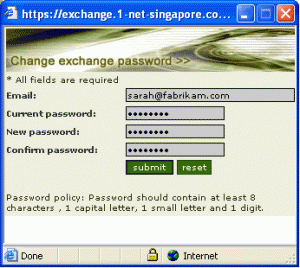
If you are in charge of network security, one thing you may want to consider as far as laying down the law in safeguarding your network is the regular change of user passwords to avoid potential hackers and cracks based on how their passwords can be easily guessed.
For some users, it is easy to figure out their passwords. The normal passwords that people use include:
1. Birthdays
2. Anniversaries
3. Car Plate Numbers
4. Mobile Phone Numbers
5. Adding 123 to their names, or
6. Using “PASSWORD” as their password
Now there will be a lot of potential combinations depending on the length of the password. That is why the longer passwords (8 alphanumeric characters) are encouraged for users who access the network.
But while the probabilities of guessing or cracking passwords offer a lot possibilities, employing a regular maintenance as far as changing them is indeed something ideal to combat these hackers or malicious people from gaining access to the network and the programs in use.
Once cannot avoid the fact that some people’s curiosity and call for fame are the main reasons for wanting to be a hacker or code cracker. It is evident in people who are looking to try out their skill. They don’t think of the outcome which can cause a lot of problems.
So one good tip to avoid being hacked is to think like one. Once you do, think of security policies that can make it hard for you to breach a system. That is the best way to stay efficient in your line of duty in any organization.
